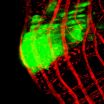Treasure trove of ancient genomes helps recalibrate the human evolutionary clock
This week in Molecular Biology and Evolution
2014-10-08
(Press-News.org) Just like adjusting a watch, the key to accurately telling evolutionary time is based upon periodically calibrating against a gold standard.
Scientists have long used DNA data to develop molecular clocks that measure the rate at which DNA changes, i.e., accumulates mutations, as a premiere tool to peer into the past evolutionary timelines for the lineage of a given species. In human evolution, for example, molecular clocks, when combined with fossil evidence, have helped trace the time of the last common ancestor of chimpanzees and humans to 5-7 million years ago, and contributed to the recent 'out of Africa' theory for a great human migration event 100,000 years ago.
To improve the modeling and reading of the branches on the human tree of life, authors Francois Balloux et al, compiled the most comprehensive DNA set to date, a new treasure trove of 146 ancient (including Neanderthal and Denisovian) and modern human full mitochondrial genomes (amongst a set of 320 available worldwide). Mitochondrial DNA (mtDNA) is a precious resource for evolutionary scientists, because they have a high mutation rate, and unlike genomic DNA, are only maternally inherited.
Now, by using a variety of sophisticated calibration techniques, the authors have improved the accuracy of using mtDNA as a molecular clock by recalibrating the human evolutionary tree. They showed that a molecular clock calibrated with ancient sequences was far more accurate than the traditional ones based on archaeological evidence. With this new recalibration, scientists can now trace back, with greater accuracy than ever before, the first 'Eves' of the many migrations leading to the colonization of the earth by anatomically modern humans.
"The recent possibility to generate high-quality genome sequences from ancient remains represents an amazing progress in our ability to accurately reconstruct the past history of many species, including our own," said author Adrien Rieux.
INFORMATION:
ELSE PRESS RELEASES FROM THIS DATE:
2014-10-08
During cell division, chromosomes acquire a characteristic X-shape with the two DNA molecules (sister chromatids) linked at a central "connection region" that contains highly compacted DNA. It was unknown if rearrangements in this typical X-shape architecture could disrupt the correct separation of chromosomes. A recent study by Raquel Oliveira, from the Instituto Gulbenkian de Ciência (Portugal), in collaboration with colleagues from the University of California, Santa Cruz (USA), now shows that the dislocation of particular DNA segments perturbs proper chromosome ...
2014-10-08
One key to animal survival is bitter taste----the better to avoid ingesting potentially harmful poisons or foods. The evolution of bitter taste has been a hot topic amongst evolutionary biologists, and with more and more DNA data available, a rich area of exploration.
Now, professor Maik Behrens, et. al. examined the genetic repertoire of bitter taste receptor genes in chickens and frogs, which represent two extremes. Chickens only have 3 bitter taste receptor genes (Tas2rs), while frogs have more than 50 (humans are somewhere in the middle). They studied the different ...
2014-10-08
This news release is available in French. The association between saturated fat and cardiovascular risk has become a hot topic in nutrition. Researchers at the Institute of nutrition and functional foods (INAF) of Université Laval are calling for a review of dietary recommendations on saturated fat (SFA) in relation to cardiovascular disease (CVD).
In a Comment paper, published today in the journal Applied Physiology, Nutrition, and Metabolism the authors provide a number of arguments for the urgency to re-assess the association between dietary saturated fat ...
2014-10-08
Researchers at the Institute for Research in Biomedicine (IRB Barcelona) have managed to generate a fruit fly (Drosophila melanogaster) model that reproduces human colon cancer. With two publications appearing in PLoS One and EMBO Reports, the IRB team also unveil the function of a key gene in the development of the disease.
"The breakthrough is that we have generated cancer in an adult organism and from stem cells, thus reproducing what happens in most types of human cancer. This model has allowed us to identify subtle interactions in the development of cancer that are ...
2014-10-08
HEIDELBERG, 8 October 2014 – Researchers in Spain have determined how a transcription factor known as Mirror regulates tumour-like growth in the intestines of fruit flies. The scientists believe a related system may be at work in humans during the progression of colorectal cancer due to the observation of similar genes and genetic interactions in cultured colorectal cancer cells. The results are reported in the journal EMBO Reports.
Colorectal cancer leads to more than half a million deaths worldwide each year. The disease originates in the epithelial cells of the ...
2014-10-08
SAN FRANCISCO, Oct. 8, 2014 -- Employees who are verbally abused by supervisors are more likely to "act out" at work, doing everything from taking a too-long lunch break to stealing, according to a new study led by a San Francisco State University organizational psychologist.
Even if the abuse is meant to be motivational -- like when a football coach berates his team or a drill sergeant shames her cadets -- the abused employees are still more likely to engage in counter-productive work behaviors, said Kevin Eschleman, assistant professor of psychology at SF State.
The ...
2014-10-08
New research from the Johns Hopkins Bloomberg School of Public Health finds that large chain restaurants, whose core menu offerings are generally high in calories, fat and sodium, introduced newer food and beverage options that, on average, contain 60 fewer calories than their traditional menu selections in 2012 and 2013.
Researchers say this could herald a trend in calorie reduction in anticipation of expected new federal government rules requiring large chain restaurants – including most fast-food places – to post calorie counts on their menus. The appearance ...
2014-10-08
PHILADELPHIA – (Oct. 8, 2014) – Numerous experts and policy makers have called for hospitals to screen patients for methicillin-resistant Staphylococcus aureus (MRSA) infections and isolate anyone testing positive to prevent the spread of these so-called "Superbugs" in healthcare settings. Several states have enacted laws requiring patients be screened for MRSA upon admission.
Two new abstracts, scheduled for presentation on Friday at IDWeek, the annual scientific meeting for infectious disease specialists, found universal MRSA screening and isolation of ...
2014-10-08
This news release is available in French. Researchers at the University of Montreal and its affiliated CHU Sainte-Justine children's hospital are warning parents that difficult eaters could have underlying psychological issues, as they have found that restrictive behaviours can appear before puberty. "Many researchers believe that bulimia only appears at adolescence, but our studies indicate that the problem can arises much earlier. It is possible that it is currently under-diagnosed due to a lack of awareness and investigation," explained clinical psychologist and ...
2014-10-08
How the largest animals to have ever walked the Earth fed, and how this allowed them to live alongside one another in prehistoric ecosystems is the subject of new research from the University of Bristol and the Natural History Museum, London.
The sauropods – large, long-necked plant-eating dinosaurs such as Diplodocus and Brachiosaurus – dominated the land between 210 and 65 million years ago. They were the largest land animals of all time, with the biggest weighing 80 tonnes (more than 11 elephants) and would have needed vast amounts of food.
Despite ...
LAST 30 PRESS RELEASES:
[Press-News.org] Treasure trove of ancient genomes helps recalibrate the human evolutionary clock
This week in Molecular Biology and Evolution



